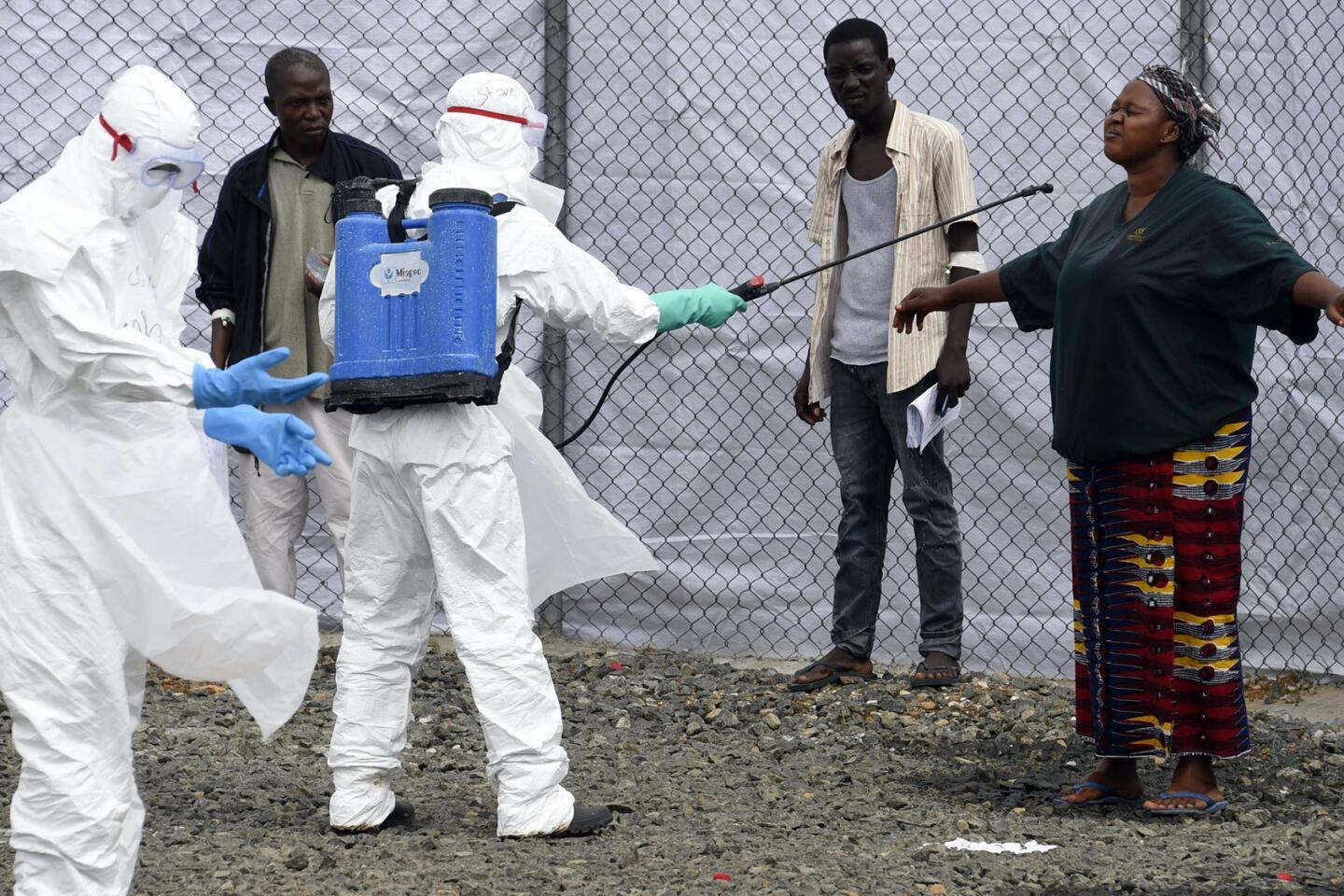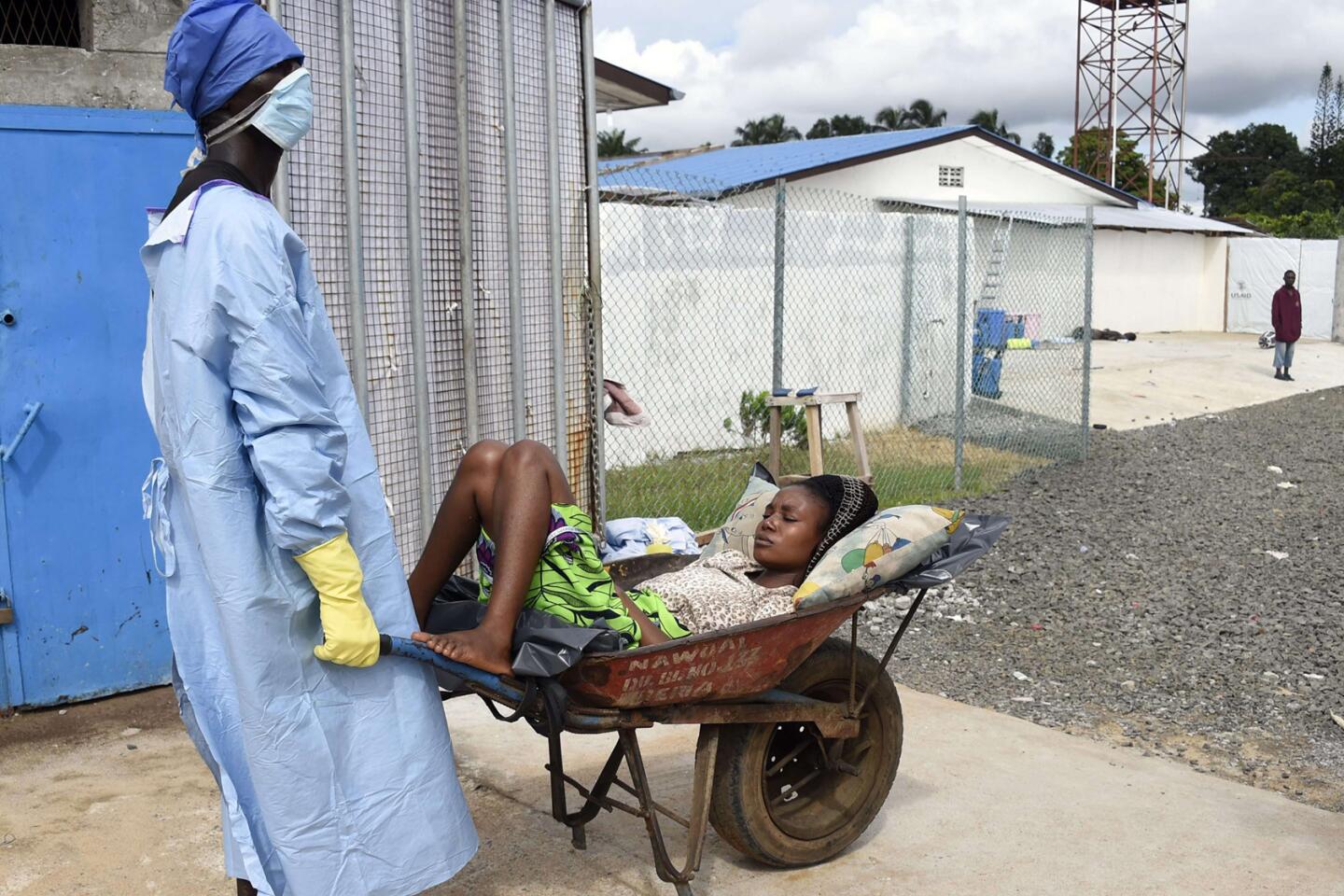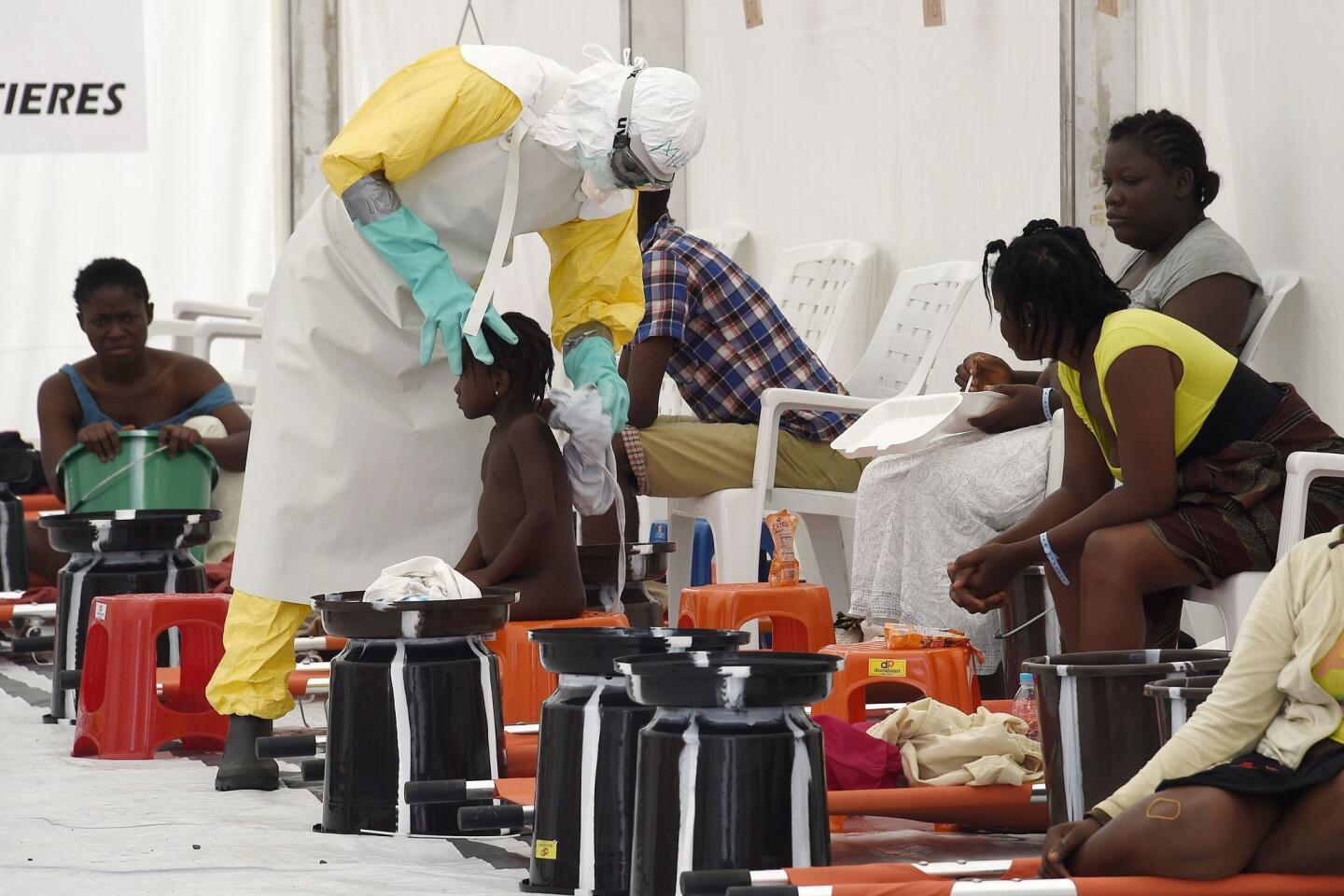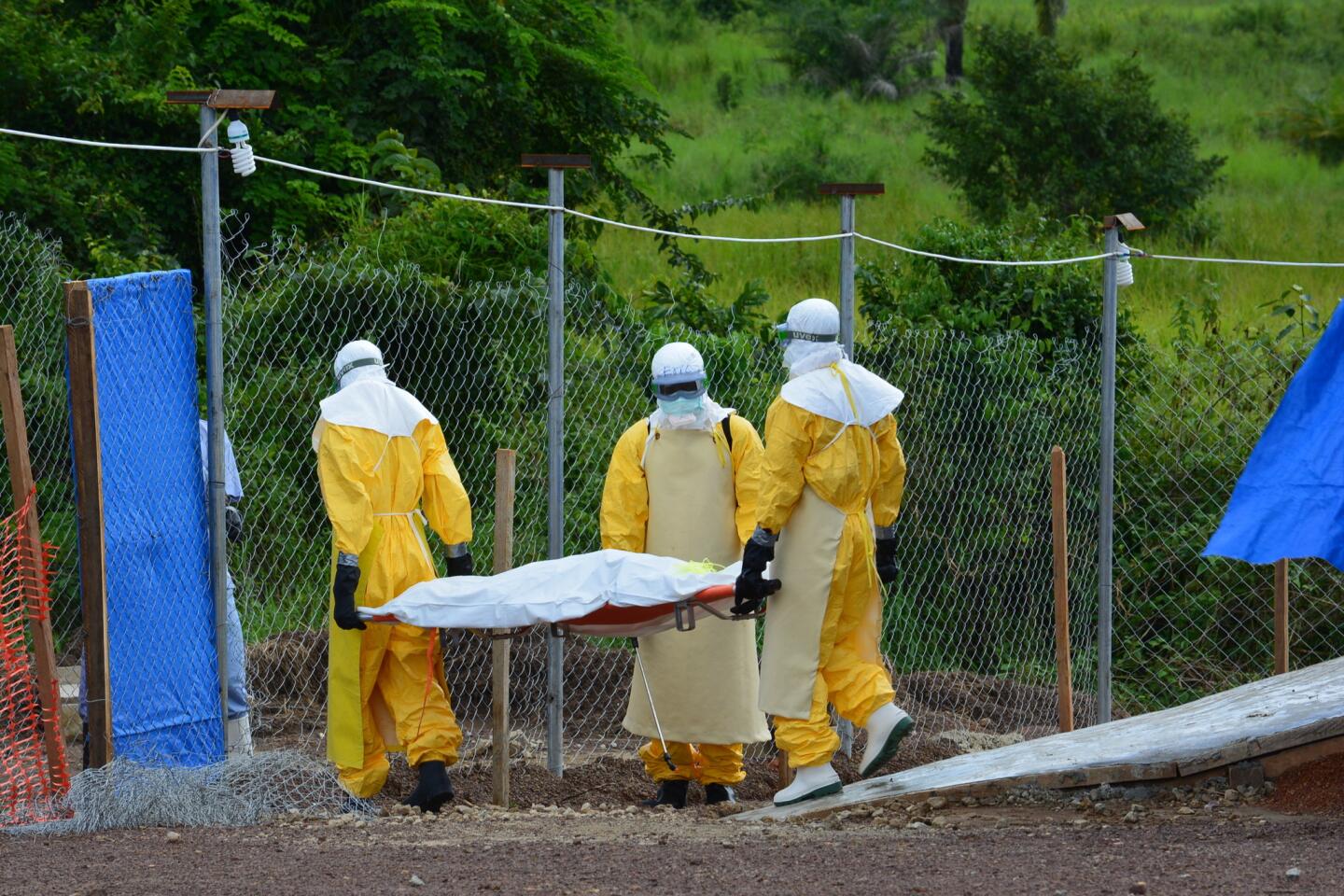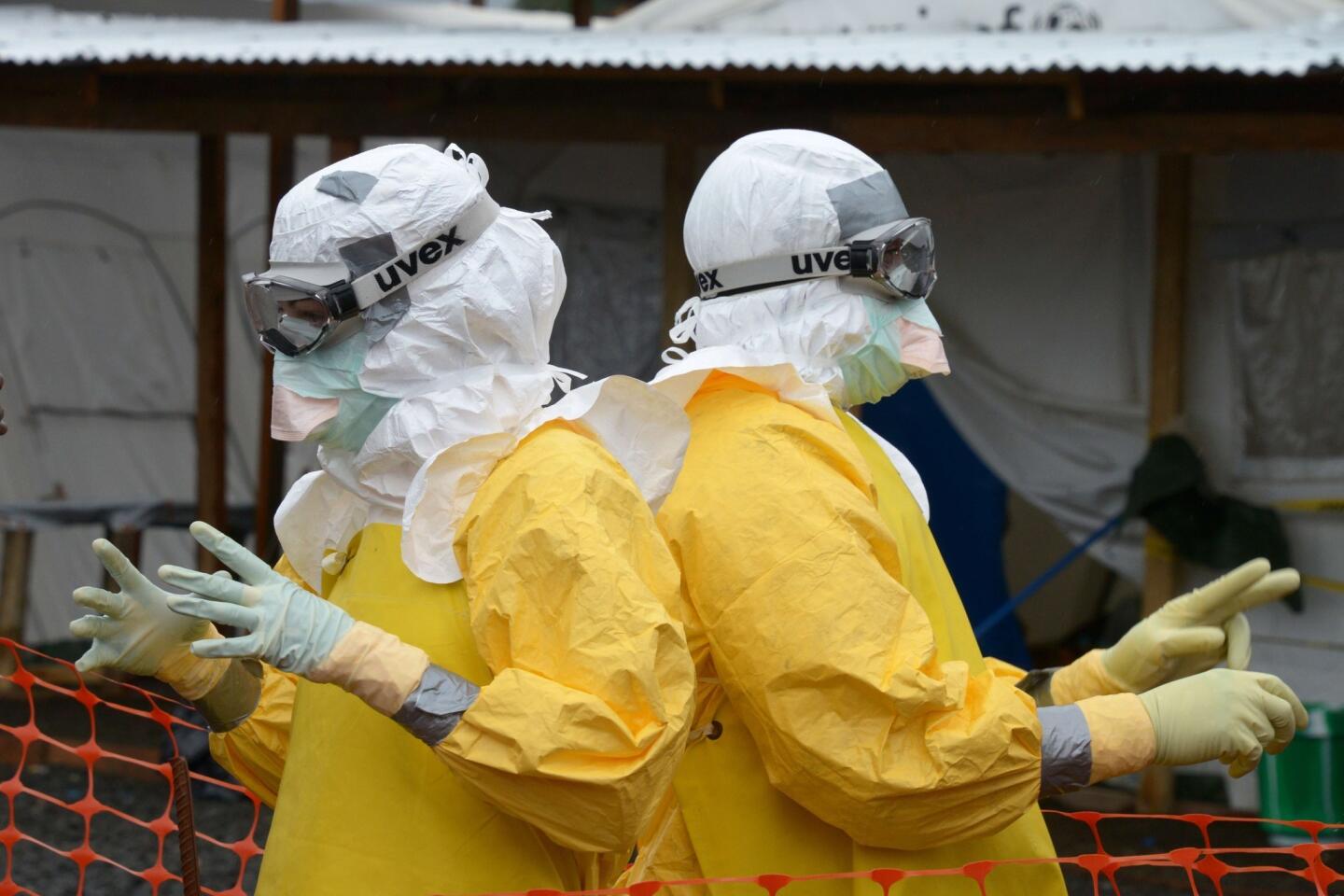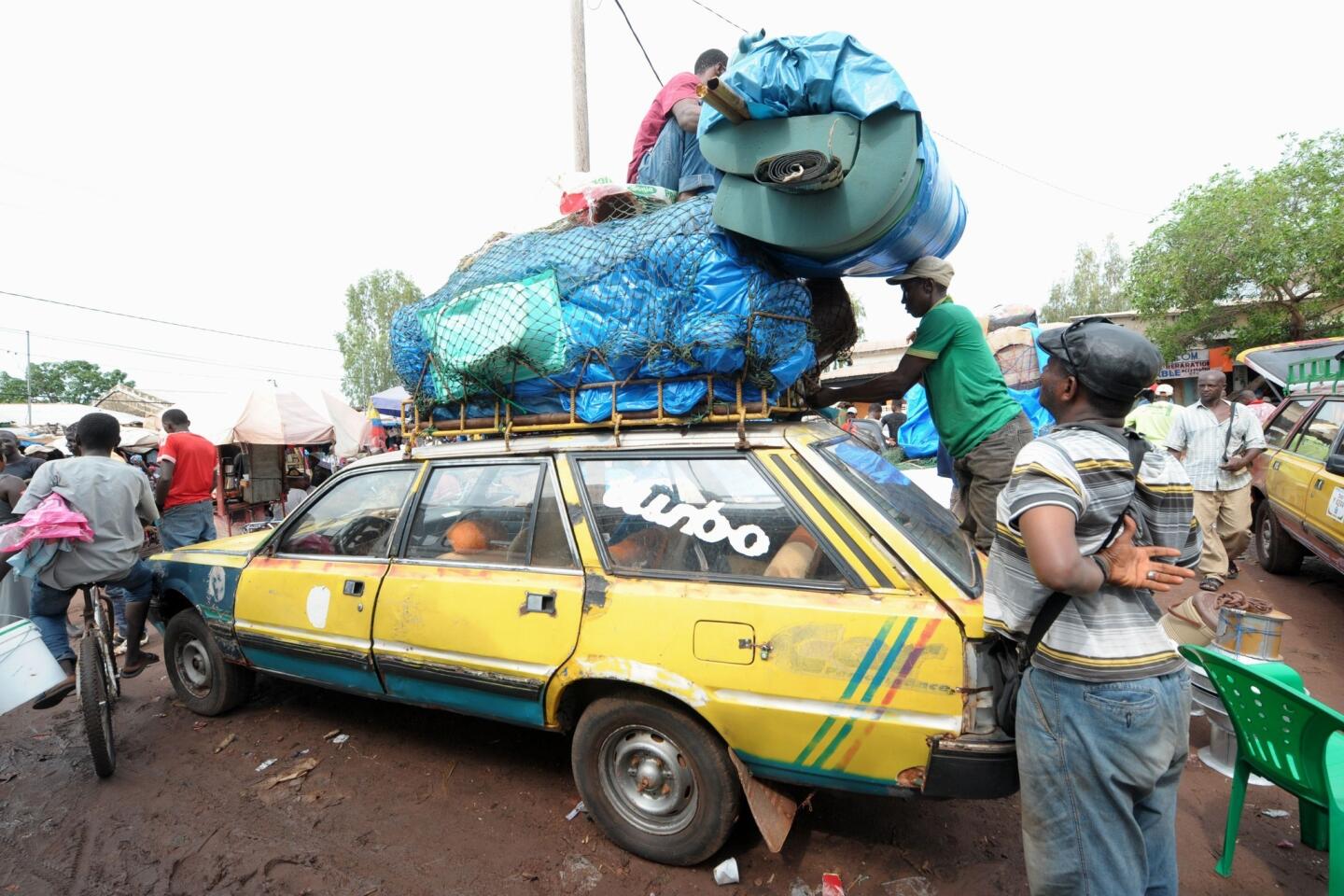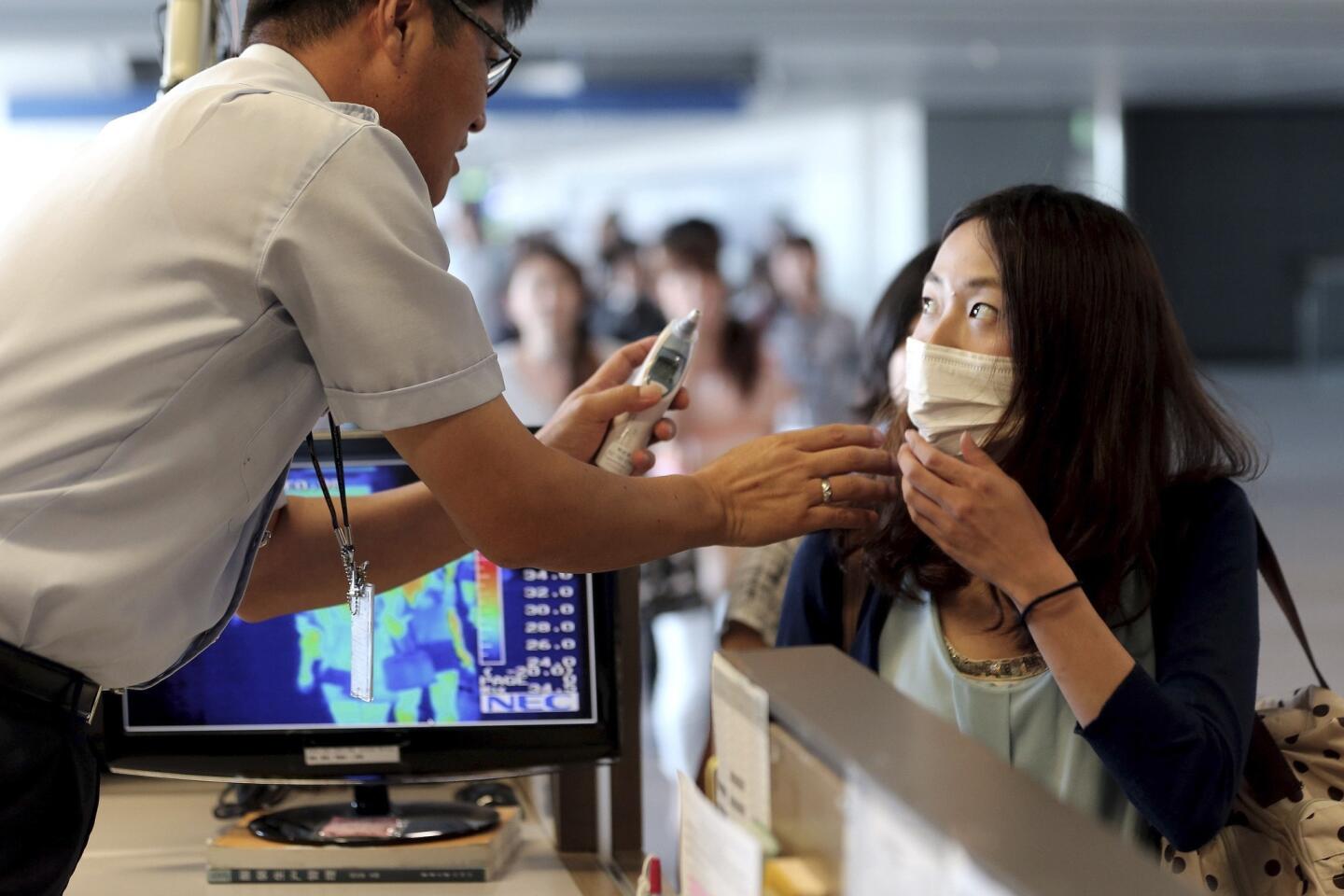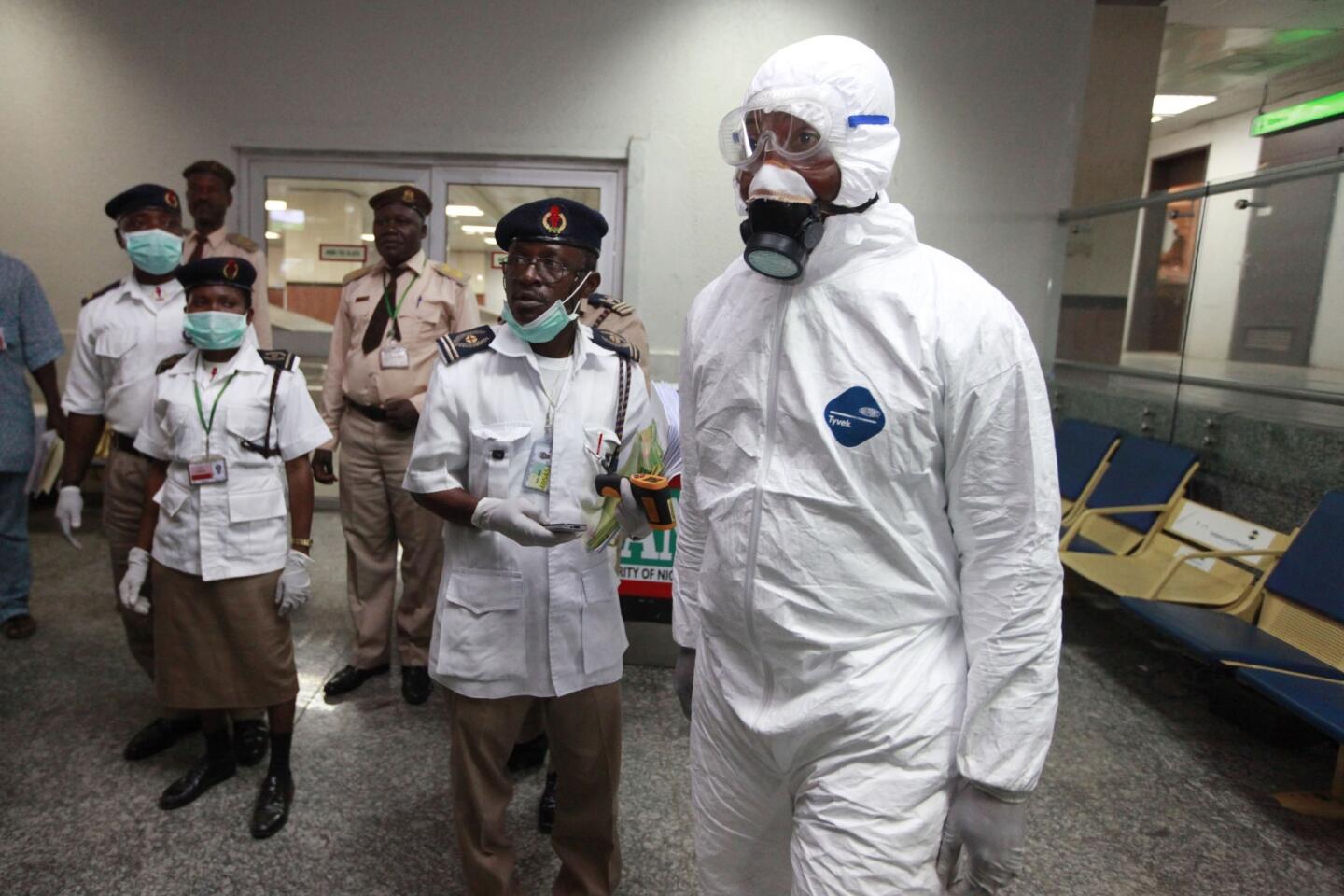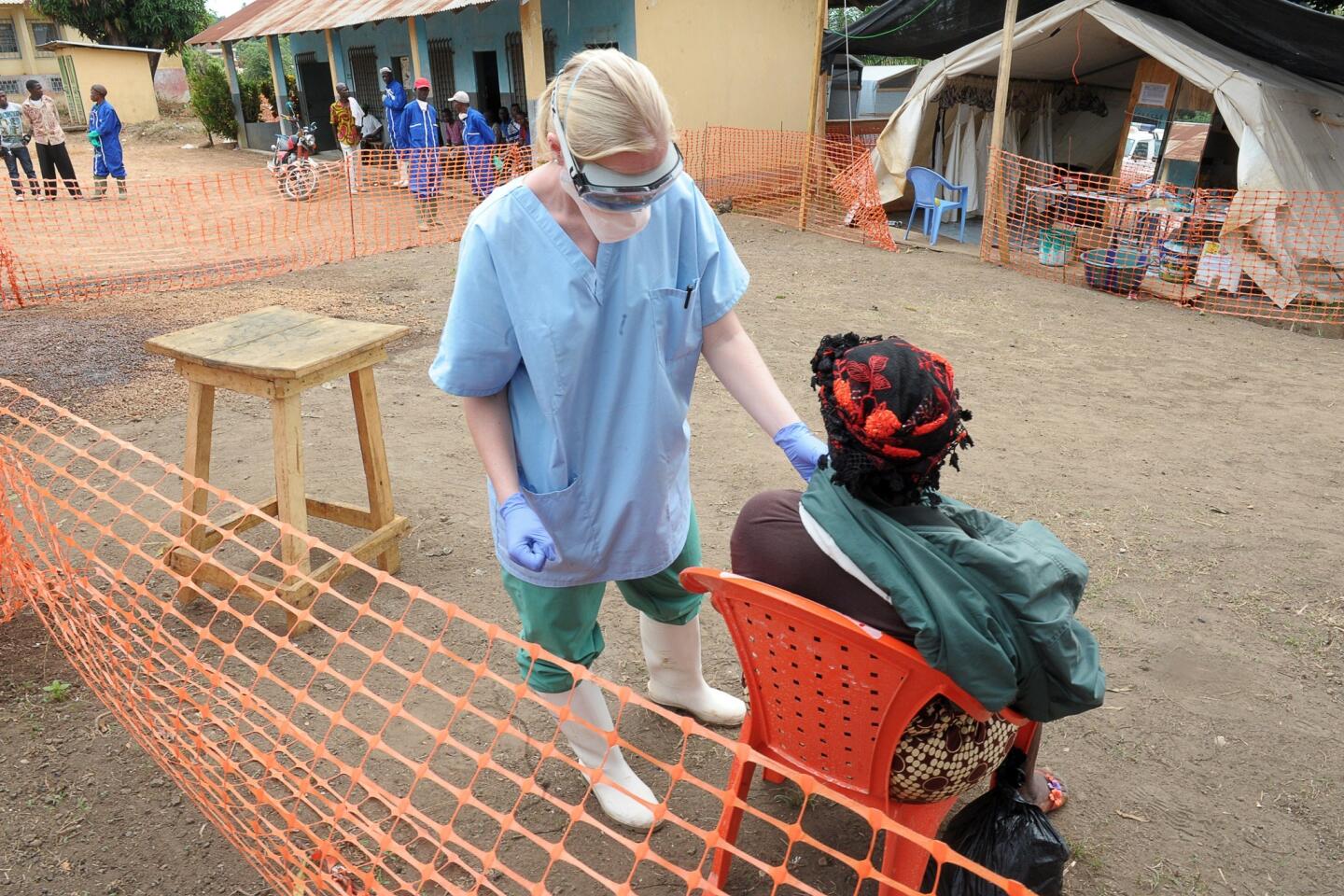Opinion: A case or two of Ebola entering the U.S. isn’t enough for travel bans
- Share via
As the editorial board of The Times pointed out, federal officials have not exactly filled a reservoir of trust with the American public over the issue of how best to keep the Ebola virus out of the country. It might actually be impossible to keep infected people from the three countries from coming in if they want to badly enough. Our borders are too porous for that.
The bigger issue for the feds is how they speak to the public. So far, it’s tended to be in such soothing terms that they’re almost condescending. “It’s fine. We’ve got it all under control. We’ve done everything necessary to keep people from getting on planes and getting into our country.” Except that didn’t prove true. Officials are proving similarly bad at communicating with the public about why we shouldn’t ban travelers from the three affected countries, Guinea, Liberia and Sierra Leone.
In an online survey by NBC News, 58% of the respondents said they favored a travel ban on flights from the three nations. But that doesn’t necessarily reflect the views of Americans as a whole. Though NBC weighted the results to reflect population demographics, there’s an underlying problem with online surveys as opposed to random polling: The people who will take the trouble to respond are the ones who came cross the opportunity to participate, and who had strong-enough feelings about the subject to do so. Those two factors alone can skew results.
What it does show is that the issue of travel bans is on people’s minds to one extent or another. But for a couple of reasons, it would be a bad idea right now.
(By the way, there really isn’t such a thing as banning flights from the afflicted countries. There are no direct flights from Liberia to the United States; passengers travel to one or more connection points and could be coming from anywhere. But the United States could conceivably refuse to admit travelers who have been in any of those countries during the past 21 days.)
Most of the travelers are obviously not infected or we would have seen a lot more cases by now. According to the U.S Centers for Disease Control and Prevention, 145 people entered the United States each day from those countries in 2013. The number is believed to be much smaller now, because many airlines have stopped flying from the affected areas, or have reduced the number of flights. We would be keeping out people who have business to conduct; impeding their ability to do that would make matters worse in their home country, which would only worsen the Ebola outbreak there. And anything that worsens the outbreak also presents a greater risk to the health of the rest of the world.
Other perfectly healthy people with legitimate reasons to visit would be stopped from doing so. And if the threat to the United States were grave, that might not matter. But one case, no matter how badly it was handled, or even two or three, is not a good enough reason for disrupting the travel plans of tens of thousands of people.
But government officials have come up with less plausible reasons for avoiding a travel ban: It would disrupt the flow of aid and aid workers to and from the affected countries, worsening the outbreak (and in turn, worsening the dangers for the United States and the rest of the world).
There are easy ways around that problem, though. We can send aid flights overseas without accepting travelers from the three countries here. We also can use military planes for returning aid workers to the United States.
It might be somewhat more inconvenient, and again, right now the disruption wouldn’t be worth it. But if the number of Ebola-infected passengers should rise above a handful, some inconvenience in moving aid around would be worth it as long as the aid can get there. It’s a conversation we don’t need to have now, but if we do, the government needs to enter that discussion with real information about the pros and cons. Its current explanation, which doesn’t square well with reality, only makes federal officials seem that much more out of touch with public concerns
Follow the Opinion section on Twitter @latimesopinion
More to Read
A cure for the common opinion
Get thought-provoking perspectives with our weekly newsletter.
You may occasionally receive promotional content from the Los Angeles Times.

